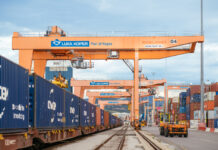The Trump administration’s recent imposition of tariffs on certain goods means that importers may need higher bond amounts to comply with the higher tariff rates. The tariffs, which include the section 232 tariff applied to steel and aluminum imports and the section 301 tariff applied to goods imported from China, increase the amount of duties payable by importers.
Since Customs Border Protection (CBP) determines sufficiency of continuous bonds through duties, taxes, and fees on a rolling 12-month basis, it’s crucial for importers to understand the new tariff changes and adhere to CBP’s requirements to avoid bond insufficiency. Having an insufficient bond can lead to cargo being held at the port, denied entry and/or the incurrence of additional fees.
Take these steps to avoid bond insufficiency:
- Check with your Customs broker or surety company to determine if your continuous bond will require an increases.
- If an importer needs an increase, gather the necessary underwriting requirements such as bond applications, indemnities, and financial statements.
- When applying for the new bond, consider the duties, taxes, and fees needed for the next 12 months.




